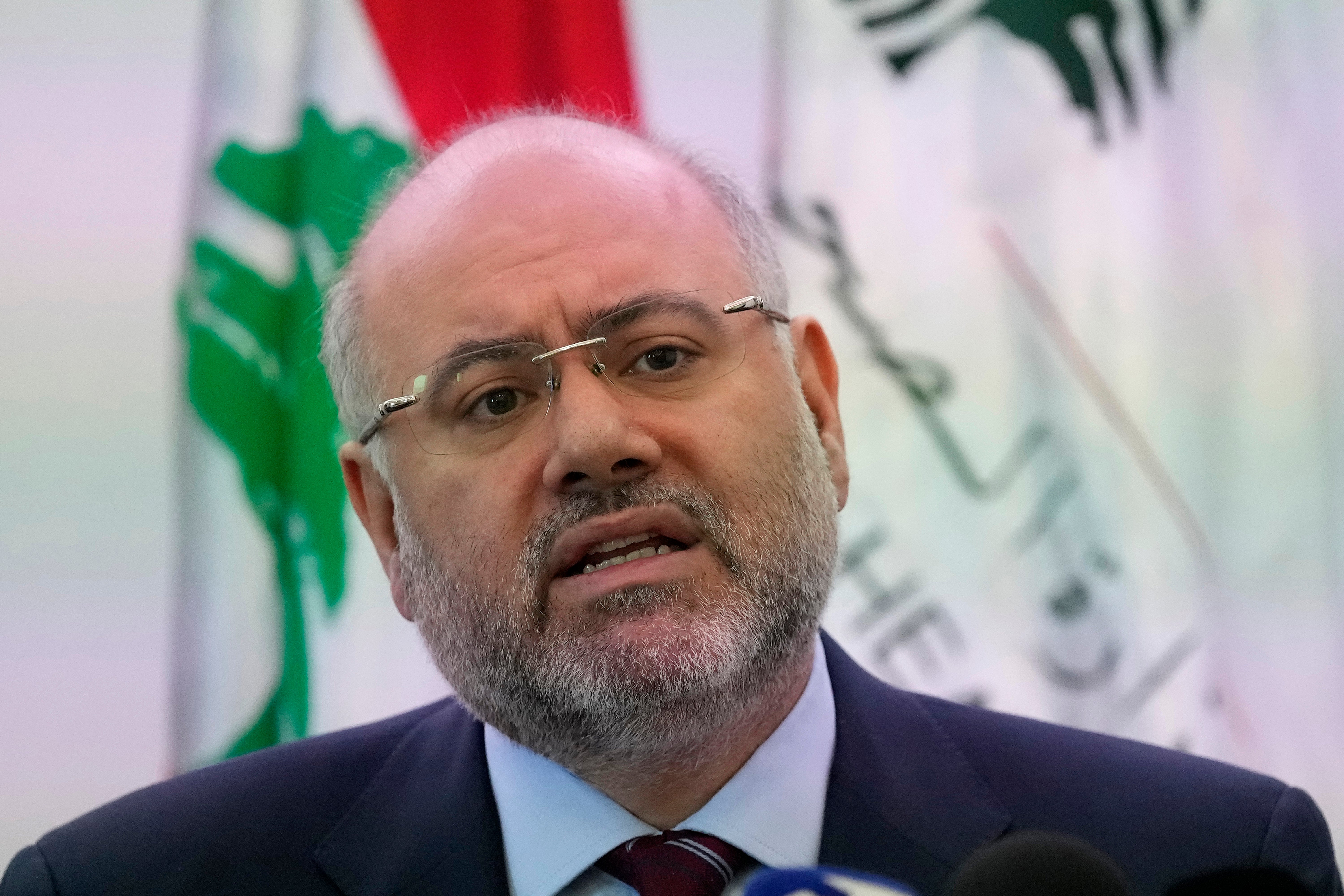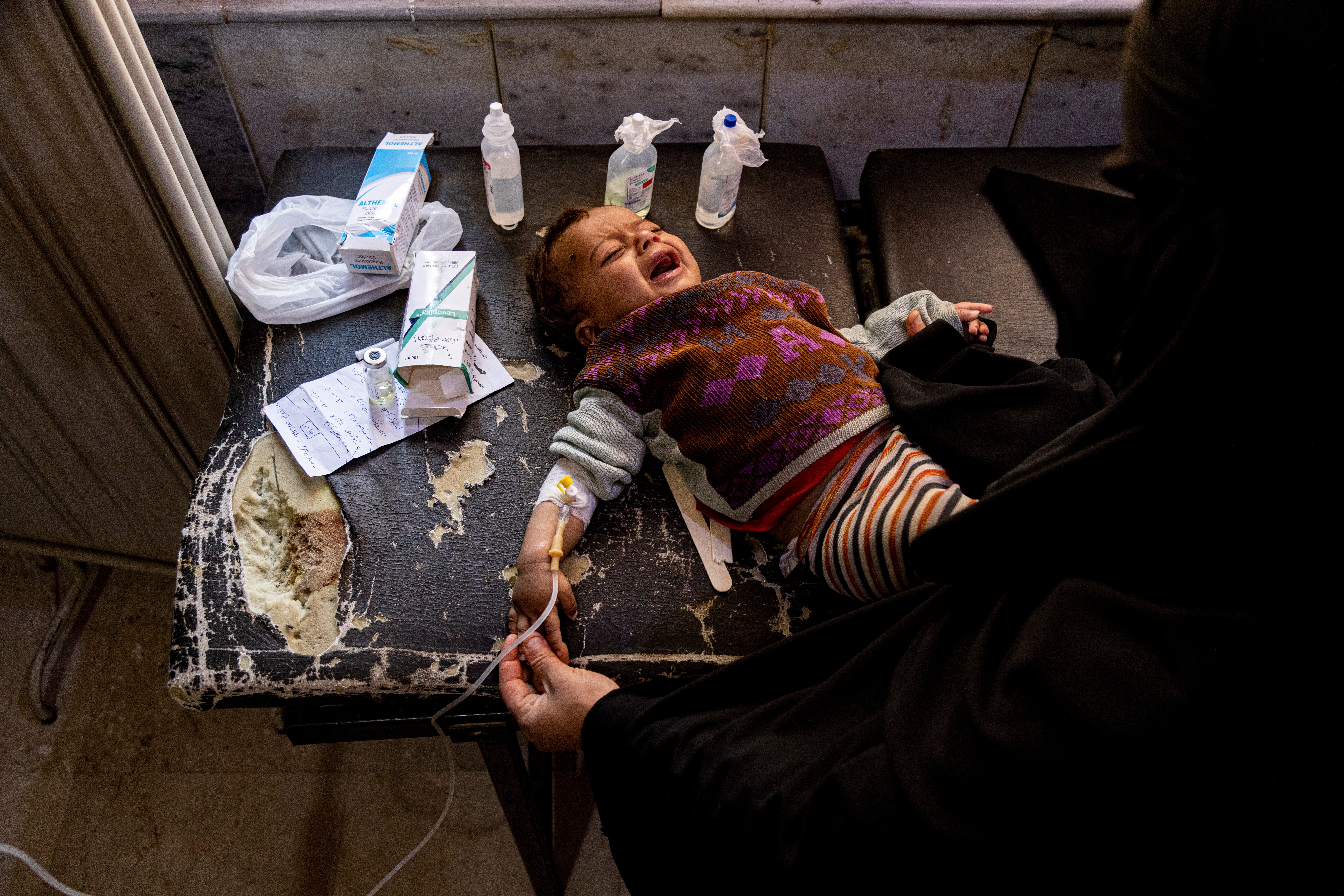Your support helps us to tell the story
From reproductive rights to climate change to Big Tech, The Independent is on the ground when the story is developing. Whether it's investigating the financials of Elon Musk's pro-Trump PAC or producing our latest documentary, 'The A Word', which shines a light on the American women fighting for reproductive rights, we know how important it is to parse out the facts from the messaging.
At such a critical moment in US history, we need reporters on the ground. Your donation allows us to keep sending journalists to speak to both sides of the story.
The Independent is trusted by Americans across the entire political spectrum. And unlike many other quality news outlets, we choose not to lock Americans out of our reporting and analysis with paywalls. We believe quality journalism should be available to everyone, paid for by those who can afford it.
Your support makes all the difference.Healthcare systems in Syria and Lebanon could buckle under the pressure of an outbreak of cholera, rights groups have warned, after the United Nations said they have now logged more than 13,000 suspected cases in recent weeks.
It is the first outbreak in more than a decade.
There are fears millions of people in the region are at risk of potentially contracting the disease which is spread by eating contaminated food and drinking water, and if left untreated can result in death.
Cholera has now been discovered in 13 of Syria’s 14 governorates, with the World Health Organisation recording thousands of suspected cases.
In recent weeks it has spread across the borders to neighbouring Lebanon where 14 cases have been confirmed by the ministry of public health in Beirut, which is also examining several dozen other suspected cases.
Humanitarian groups have warned the disease could spread through the Middle East region, as the health systems of both countries are near collapse due to acute economic crises and conflict.
In Syria, the WHO said 60 people have already died from the disease but fear the true number is far higher because of limited testing capacities.
More than 70 per cent of the Syrian population, some 12.2 million people, rely on healthcare aid, according to the International Rescue Committee. More than half of those are based in northern Syria in overcrowded camps for the internally displaced – an area where the WHO says the outbreak is the most acute.
In neighbouring Lebanon, meanwhile, the country is gripped by one of the world’s worst economic collapses, leaving it plagued by rampant electricity cuts, water shortages and little access to medicines.
The Lebanese health authorities have recorded more than a dozen confirmed cases, the first such outbreak in nearly 30 years.
The initial case was a middle-aged Syrian refugee in the impoverished northern province of Akaar, igniting fears of rapid transmission within the country’s sprawling refugee community. Lebanon is home to more than a million Syrian refugees, the vast majority living in squalid conditions.

Laila Kiki, the executive director of human rights organisation The Syria Campaign, said on Thursday the rapidly growing cholera epidemic could have “devastating” consequences for Syria and the entire Middle East region if it is not dealt with effectively.
“It is outrageous that there has been so little action so far to stop the spread. The world must not stand by in silence,” she said.
Dr Hala al-Ghawi, Syria country manager at MedGlobal, a medical NGO, said that there had so far been no “concrete dedicated response” to the cholera outbreak from UN-coordinated health clusters and bodies.
She warned that in Syria in particular “both the medical and sanitation infrastructure are extremely vulnerable and can collapse”.
Bujar Hoxha, from international rights group Care, said that in Lebanon more than three-quarters of the population live under the poverty line.
“The spread of the disease could be fatal, considering Lebanon’s devastated economy, with the second highest food inflation in the world.”
The Lebanese health minister Firass Abiad confirmed the first cases in Lebanon last week saying that the authorities have been working with the United Nations Children’s Fund and WHO for weeks to ensure the cash-strapped country can respond to a possible outbreak.
It followed warnings from the UN as early as September when the first cases in Syria were detected.
Imran Riza, the United Nations humanitarian relief coordinator for Syria, had said at the time that the cholera outbreak would be a “serious threat” to the whole Middle East
He said that their assessment showed that the source of the infection was people drinking unsafe water from the Euphrates and using contaminated water to irrigate crops, resulting in food contamination.




Join our commenting forum
Join thought-provoking conversations, follow other Independent readers and see their replies
Comments